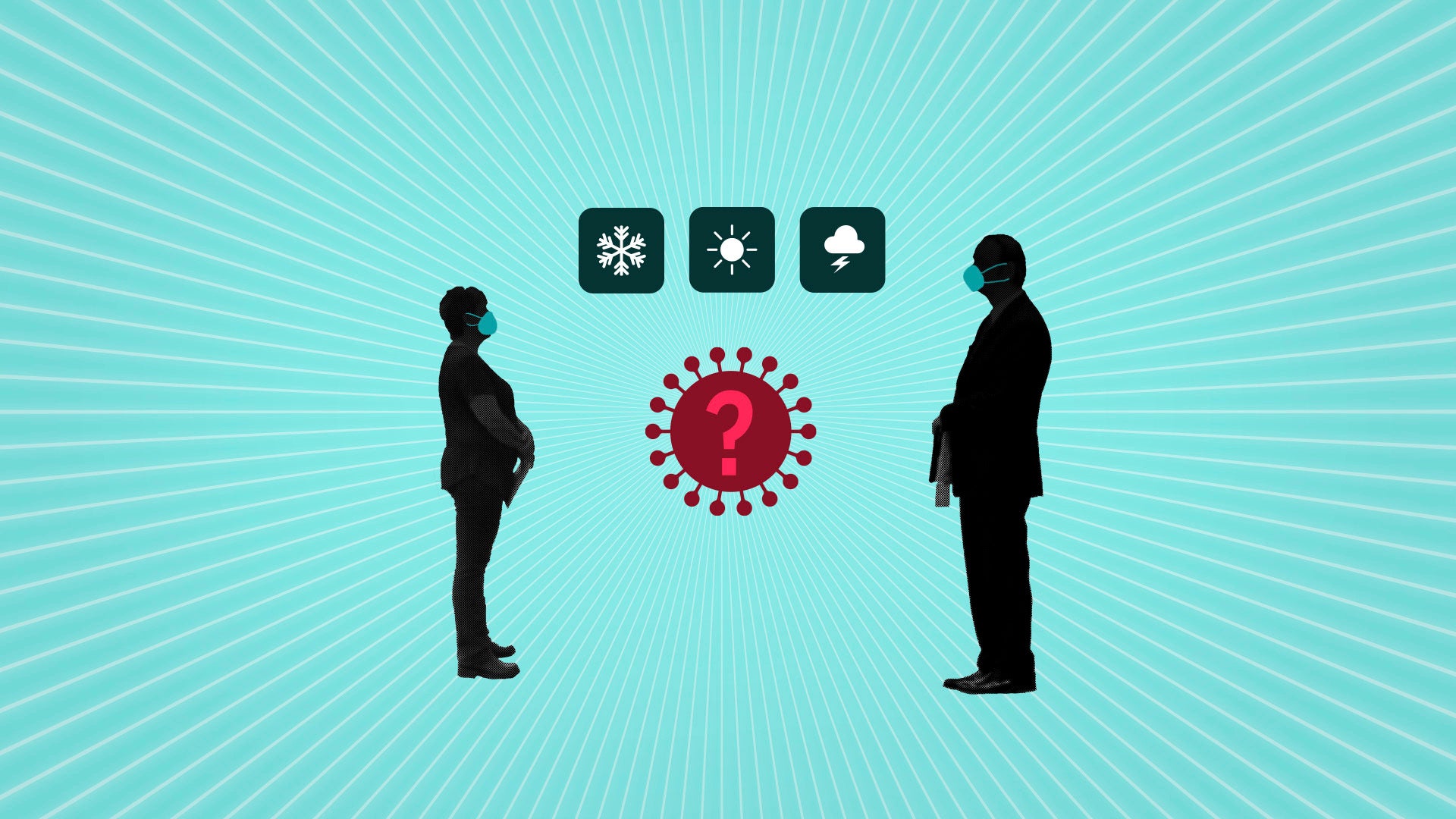Does weather affect the spread of the coronavirus outside?
The World Health Organization says the coronavirus can be transmitted in any kind of weather and that there is no reason to believe that cold weather can kill it

Your support helps us to tell the story
From reproductive rights to climate change to Big Tech, The Independent is on the ground when the story is developing. Whether it's investigating the financials of Elon Musk's pro-Trump PAC or producing our latest documentary, 'The A Word', which shines a light on the American women fighting for reproductive rights, we know how important it is to parse out the facts from the messaging.
At such a critical moment in US history, we need reporters on the ground. Your donation allows us to keep sending journalists to speak to both sides of the story.
The Independent is trusted by Americans across the entire political spectrum. And unlike many other quality news outlets, we choose not to lock Americans out of our reporting and analysis with paywalls. We believe quality journalism should be available to everyone, paid for by those who can afford it.
Your support makes all the difference.Does weather affect the spread of the coronavirus outside?
Not really.
The World Health Organization says the virus can be transmitted in any kind of weather and that there is no reason to believe that cold weather can kill it.
The U.N. health agency says the virus is mainly spread between people. Rain and snow might dilute any traces of the virus on benches or other outside objects, but transmission from surfaces is not believed to be a major contributor to the pandemic.
Scientists say the real concern about cold weather is that lower temperatures are more likely to keep people indoors — potentially in more crowded spaces where the virus can spread more easily.
Studies have shown that a significant percentage of spread happens within households when people are sharing common areas like kitchens and bathrooms.
WHO and others have also warned that in indoor spaces with poor ventilation, transmission happens more easily because the virus can be spread in the air and infectious particles might remain suspended in the air for several hours.
Superspreader events have been traced to nightclubs, gyms and even choir practices. The coronavirus does not transmit as often outdoors because fresh air disperses the virus particles and people are more easily able to keep their distance from others. But experts caution that if people spend extended periods of time outdoors close to others without wearing masks, coronavirus spread is still possible.
Health officials say the best way to stop transmission of the virus is to wear a mask in public, stay at least 6 feet (2 meters) away from people not in your household and frequently wash your hands.
___
The AP is answering your questions about the coronavirus in this series. Submit them at: FactCheck@AP.org.
Read previous Viral Questions:
How does COVID-19 affect the heart?
Does the flu vaccine affect my chances of getting COVID-19?
Do I need to wear a mask if I’m 6 feet away from others?